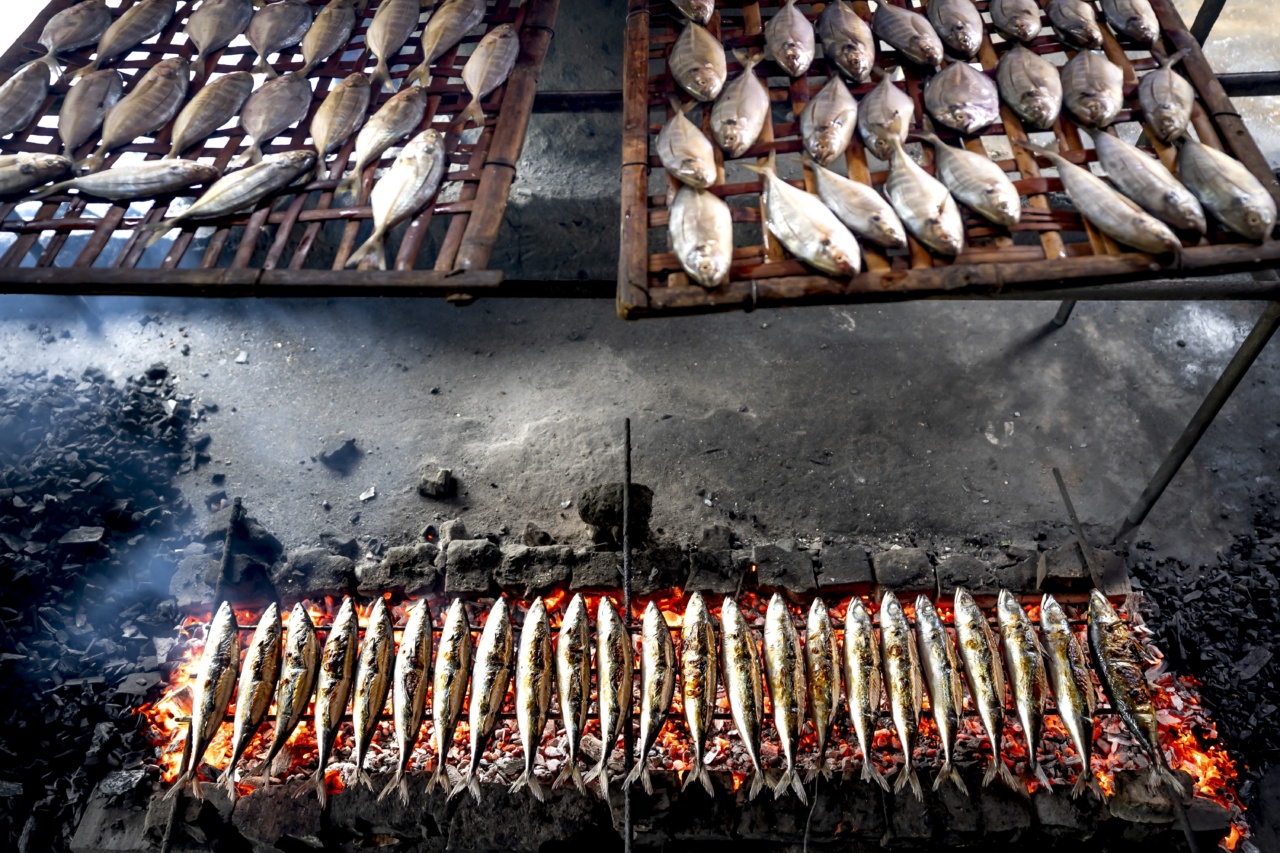Seafood is a great source of protein and omega-3 fatty acids that are crucial for fetal growth and development during pregnancy.
Nevertheless, pregnant women should be cautious of consuming certain kinds of seafood as they might contain high levels of mercury, bacteria, and other contaminants that can harm the mother as well as the developing baby. In this ultimate guide, we will discuss some crucial tips on how to prepare safe and nutritious seafood during pregnancy.
1. Choose Low Mercury Seafood
Mercury is a toxic element that can cause brain damage, hearing loss, and developmental delays in fetuses and young children when consumed in high amounts.
Pregnant women are suggested to avoid high mercury seafood like shark, swordfish, king mackerel, and tilefish. Instead, they should choose low mercury options like salmon, shrimp, pollock, catfish, and canned light tuna, which are rich in protein, vitamin D, and omega-3 fatty acids.
Keep in mind that albacore tuna or “white” tuna has higher mercury levels than canned light tuna. Therefore, it should be consumed in moderation- only 6 ounces or less per week.
2. Cook Seafood Thoroughly
Cooking seafood thoroughly can kill harmful bacteria and viruses that can cause food poisoning in pregnant women and harm the baby.
Inadequately cooked seafood can be contaminated with listeria, salmonella, norovirus, and other harmful microorganisms that can cause diarrhea, vomiting, fever, and even miscarriage. Pregnant women should cook fish, shellfish, and other seafood until it reaches an internal temperature of 145 degrees Fahrenheit or hotter. You can use a food thermometer to check the temperature.
Moreover, avoid cross-contamination by separating raw seafood from cooked food and using separate cutting boards and utensils.
3. Avoid Raw and Undercooked Seafood
Raw and undercooked seafood like sushi, sashimi, ceviche, clams, oysters, and mussels can contain harmful bacteria, viruses, and parasites that can harm the mother and the baby.
Some germs like listeria, toxoplasma, and Vibrio vulnificus can pass through the placenta and infect the fetus, causing severe illness and even death. Therefore, pregnant women should abstain from consuming raw or undercooked seafood. If you crave sushi or other raw seafood, you can choose vegetarian or cooked options.
4. Consider Buying Frozen Seafood
Buying frozen seafood can be a safe choice during pregnancy. Freezing seafood kills harmful bacteria and viruses that can cause foodborne illnesses and reduces the risk of contamination.
Frozen fish and seafood are often fresher than non-frozen options because they are quickly frozen right after being caught, which preserves their quality and flavor. Pregnant women should buy frozen seafood from reputable suppliers and ensure that the product has been frozen at or below -4 degrees Fahrenheit for at least seven days before consumption.
5. Choose Wild Caught Seafood
Wild caught seafood is often considered healthier and safer than farmed seafood because it is less exposed to antibiotics, hormones, and other chemicals that are typically used in aquaculture.
Wild caught seafood like salmon, cod, haddock, halibut, and shrimp also contain higher amounts of omega-3 fatty acids, which are essential for fetal brain and eye development. However, pregnant women should avoid consuming too much seafood that contains high levels of contaminants like mercury, polychlorinated biphenyls (PCBs), and dioxins.
Reputable fishmongers can provide information on the seafood origin and how it has been caught or farmed.
6. Limit Intake of High-fat Seafood
Although many types of seafood contain healthy fats like omega-3 fatty acids, pregnant women should limit the consumption of high-fat seafood like tuna, salmon, and sardines to avoid consuming excessive amounts of mercury, which can harm the fetus’s neurological development. Moreover, high-fat seafood can contain more calories and cholesterol, which can increase the risk of gestational diabetes, high blood pressure, and heart diseases.
Pregnant women should aim to consume a variety of low-fat seafood that is rich in nutrients and low in contaminants.
7. Don’t Overdo Canned Tuna
While canned light tuna is a healthy and affordable source of protein and omega-3 fatty acids, pregnant women should not consume more than two to three servings of 4-ounce canned tuna per week as it contains small amounts of mercury, which can accumulate in the body over time. Canned white tuna or albacore tuna should be consumed with even greater moderation, not exceeding 6 ounces per week. Pregnant women can opt for canned salmon, shrimp, sardines, or other low-mercury canned seafood for variety.
8. Watch Out for Seafood Allergies
Seafood allergies can occur during pregnancy, even if a woman has not been allergic to seafood in the past.
Allergies to shrimp, lobster, crab, and other seafood can cause symptoms like rash, hives, itching, and swelling, which can be severe in rare cases. Pregnant women who experience allergic reactions after consuming seafood should seek medical attention immediately and avoid seafood until they are tested by a medical professional.
If you have a pre-existing allergy to seafood, you may need to avoid it altogether during pregnancy or consult an allergist for further advice.
9. Use Safe Seafood Cooking Methods
Pregnant women should also be careful about the way they cook seafood to avoid exposing themselves to contaminants or bacteria.
Safe cooking methods include baking, grilling, boiling, or steaming seafood, which can preserve the nutritional value and flavor while eliminating bacteria and germs. Avoid using raw seafood marinades, which can cause cross-contamination, and follow cooking instructions accurately.
If you eat seafood outside the home, make sure to ask how it has been cooked and avoid it if you feel uncomfortable with the preparation.
10. Consult with a healthcare professional
Lastly, it is always a good idea to consult with a healthcare professional if you have any doubts about eating seafood or your overall diet during pregnancy.
Your doctor or dietitian can provide you with tailored advice based on your specific health needs and medical history. They can also recommend safe supplements like prenatal vitamins that can fill the gaps in your nutrition during pregnancy.
Remember that a balanced and varied diet can benefit both you and your baby and make your pregnancy journey smoother and more enjoyable.































